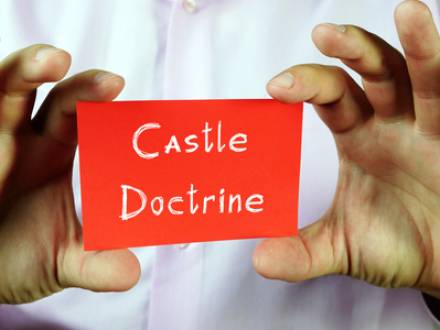Tennessee Castle Doctrine: Self-Defense or Excessive Force?
 While all 50 states recognize some form of the Castle Doctrine, the specifics of the law vary significantly from one state to another. The Castle Doctrine is a principle that allows the lawful occupant of a home to use deadly force with no duty to retreat from an intruder (although some states do have caveats regarding the duty to retreat).
While all 50 states recognize some form of the Castle Doctrine, the specifics of the law vary significantly from one state to another. The Castle Doctrine is a principle that allows the lawful occupant of a home to use deadly force with no duty to retreat from an intruder (although some states do have caveats regarding the duty to retreat).
The differences between states center around whether the specific conditions under which deadly force is permitted, and where the Castle Doctrine applies (i.e., only the home or also in the workplace or one’s vehicle). The Castle Doctrine can serve as a legal defense against criminal charges if you are involved in a situation where you used deadly force against an intruder.
If you find yourself in the position of facing criminal charges for the use of deadly force, the specifics of the Tennessee Castle Doctrine can mean the difference between a felony conviction and your freedom. An experienced Clinton, TN criminal defense lawyer can build a comprehensive defense on your behalf after listening to your story and reviewing the evidence.
What Does the Tennessee Castle Doctrine Say?
In the state of Tennessee, you can use deadly force against an intruder in your home with no requirement to try to escape or retreat from the threat. The intruder must have unlawfully entered your home, vehicle, or place of business, and you must reasonably believe the intruder has the intent to commit a felony or cause death or serious bodily injury.
The law does say that your use of force should be "proportional" to the threat. However, when someone unlawfully enters your home, there is a presumption of danger of serious bodily harm or death, which generally justifies the use of deadly force.
Although the belief in the need for deadly force must be objective and reasonable, the very fact of a person being in your home unlawfully usually provides the "objective and reasonable" requirement. You cannot use deadly force only to protect your property. In other words, you cannot shoot at a car thief who is stealing your car, because your life is not in imminent danger.
What is the Difference Between the Castle Doctrine and Stand Your Ground Laws?
Tennessee has both the Castle Doctrine and a Stand Your Ground law. The Castle Doctrine applies specifically to your home, car, or place of work, removing the duty to retreat when an intruder is present unlawfully and you have a reasonable belief that the intruder means you harm. The Stand Your Ground law applies anywhere you have a legal right to be, making it legal not to retreat from a threat and legal to use force in self-defense or defense of others if you reasonably believe it is necessary.
You may not be engaged in any unlawful activity at the time you implement the Stand Your Ground law, and you may not be the provoker or aggressor. The level of force you use under the Stand Your Ground law must be necessary and proportional to the perceived threat. For example, suppose you and your family are at a concert when an inebriated person bumps into your daughter, knocking her to the ground. You beat the guy so severely that he is in the hospital for weeks.
Since your daughter was not seriously hurt, and the inebriated man probably had no intent to hurt anyone, your use of force in this case is not proportional to the threat, and you would likely be charged with assault. In the same scenario, assume a man with a knife tries to stab you and your family members for no reason. A level of force that puts him in the hospital would not be considered excessive because he posed a potentially deadly threat to you and your family.
Contact an Anderson County, TN Self-Defense Lawyer
If you are facing criminal charges and you believe your actions were justified under the Castle Doctrine or Stand Your Ground law, you need a knowledgeable Clinton, TN criminal defense lawyer from The Baker Law Firm. Attorney Baker will work hard to establish a reasonable fear of imminent harm and prevent the prosecutor from overcharging. Call 865-200-4117 to schedule your free consultation.
![[[title]](/images/logo.png)








 Map & Directions
Map & Directions


